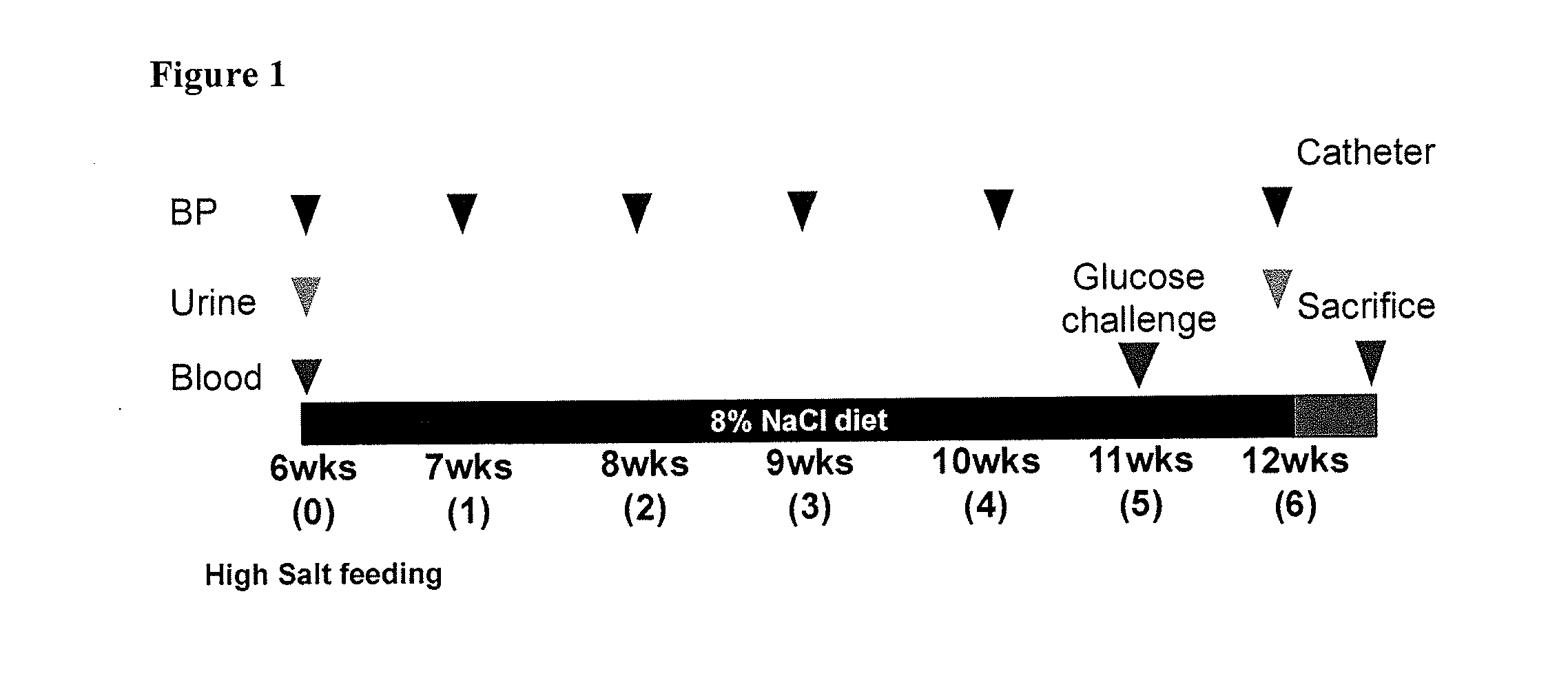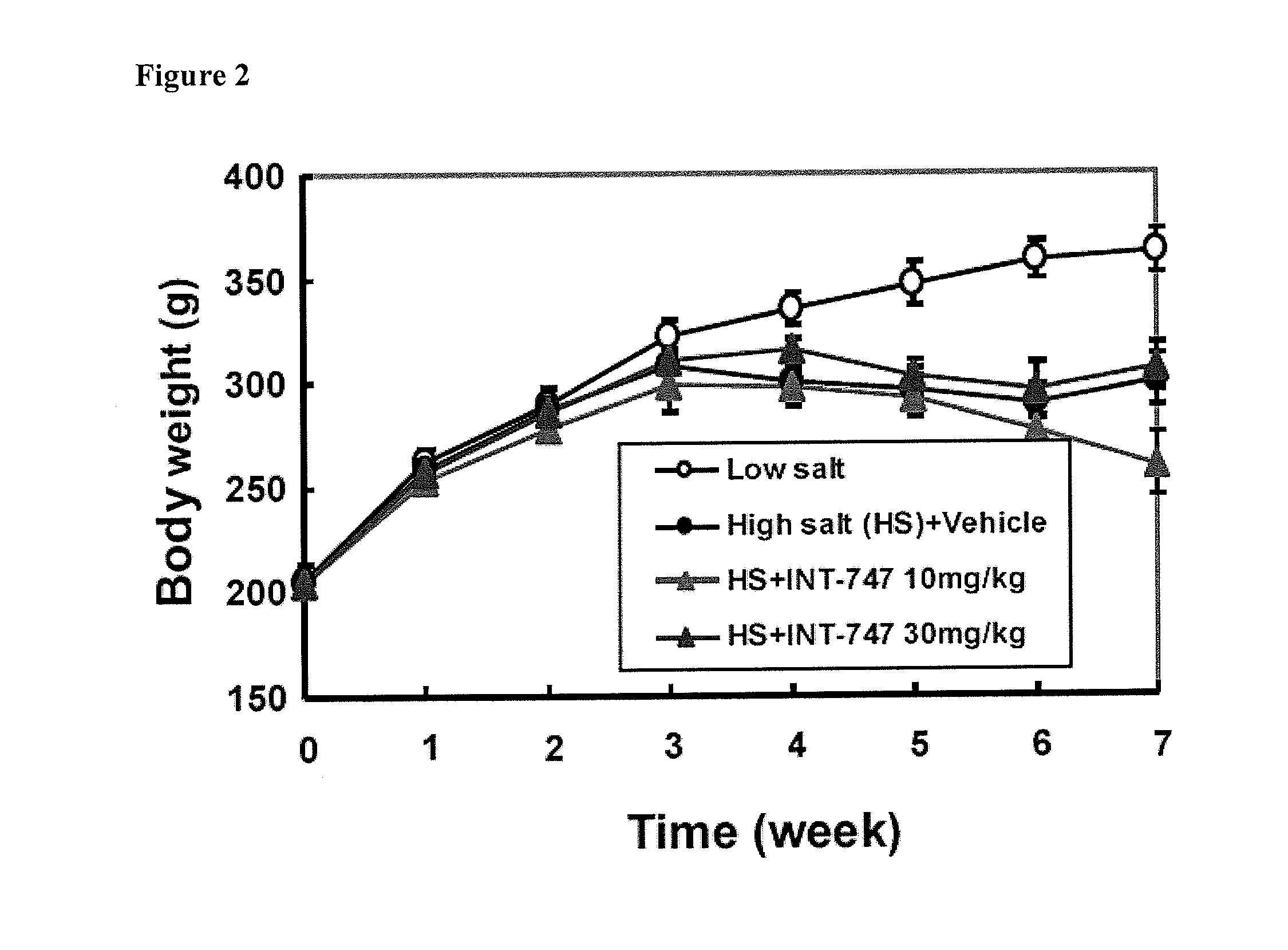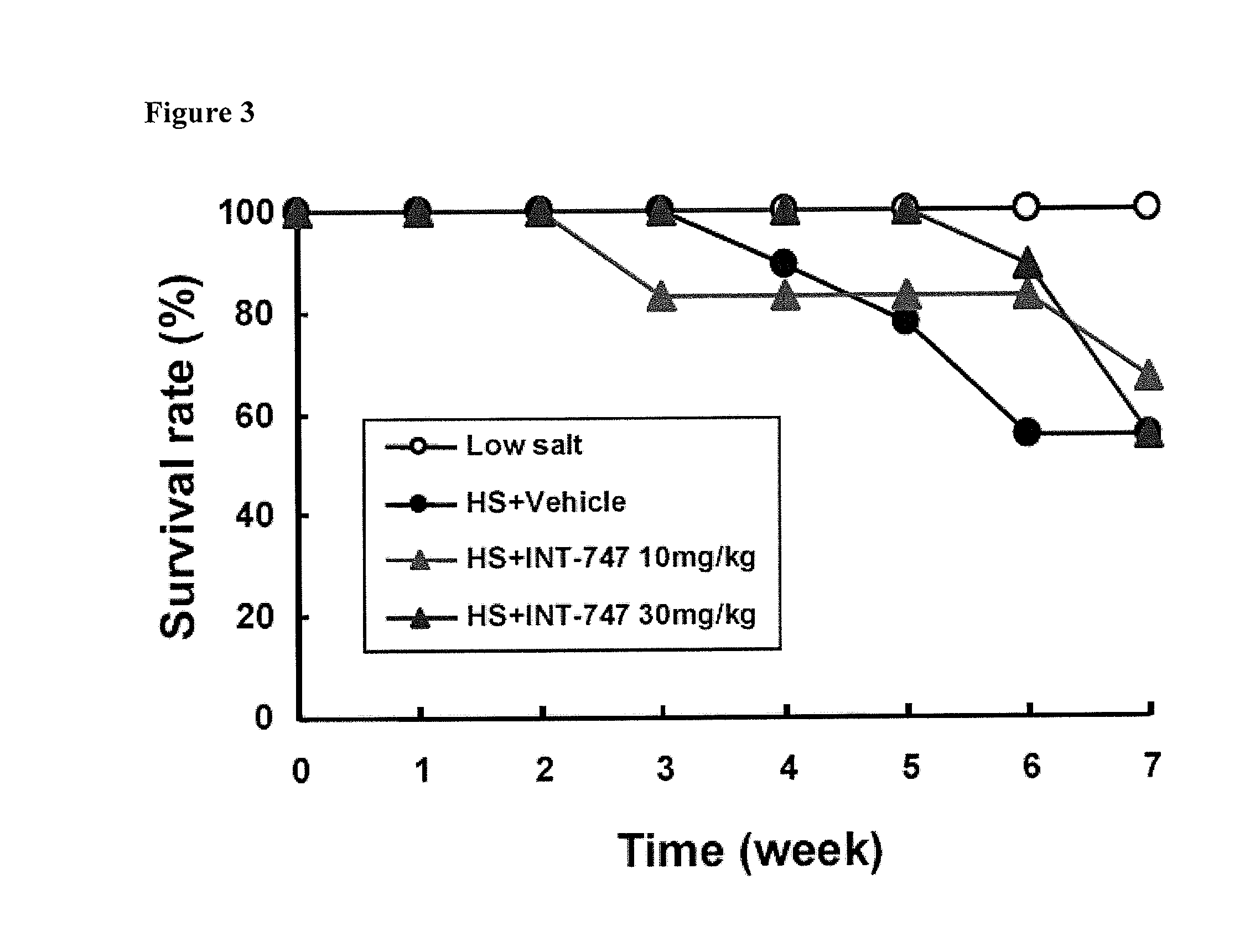Treatment of Pulmonary Disease
a pulmonary disease and pulmonary tube technology, applied in the field of pulmonary tube disease treatment, can solve the problems of increased pressure, patient death, heart failure, etc., and achieve the effect of reducing the risk of pulmonary tube disease, preventing or alleviating symptoms
- Summary
- Abstract
- Description
- Claims
- Application Information
AI Technical Summary
Benefits of technology
Problems solved by technology
Method used
Image
Examples
example 1
Preparation of Compound 1
[0180]a) Preparation of Methyl 3α-hydroxy-7-keto-5β-cholanate (III). 17.0 kg of 3α-hydroxy-7-keto-5β-cholanic acid, 68 kg of methanol and 0.17 kg of methansulphonic acid were charged into a reactor. The reaction mixture was then heated to 30-60° C. for 1 hour and 25.5 kg of demineralised water was added. The mixture obtained was then stirred, cooled to 20-25° C. until a good precipitation was obtained, then cooled further to 0-15° C. The precipitate was filtered and washed with a mixture of water and methanol and further dried in an oven at about 40° C. 15 kg of methyl 3α-hydroxy-7-keto-5β-cholanate (III) was thus obtained. The stoichiometric yield was 85.2%.
[0181]b) Preparation of Methyl 3α-trimethylsiloxy-7-keto-5β-cholanate (IV). 15.0 kg of methyl 3α-hydroxy-7-keto-5β-cholanate, 45 kg of toluene, 7.5 kg of triethylamine, and 7.5 kg of trimethylchlorosilane were charged into a reactor. The mixture was heated to 70-80° C. and was kept under stirring at that...
example 2
Preparation of Compounds 2-4
[0188]3α-Tetrahydropyranyloxy-7-keto-5β-cholan-24-oic Acid (2A). 3,4-dihydro-2H-pyrane (1.74 ml, 19 mmol) in dioxane (12 ml) was dropped slowly to a solution of p-toluenesulfonic acid (115 mg, 0.6 ml) and 6α-ethyl-7-ketolithocholic acid (5.0 g, 12 mmol) in dioxane (55 ml). The reaction mixture was stirred at room temperature for 2 hours. Water (40 ml) was then added, and the mixture was partially concentrated under vacuum and extracted with EtOAc (4 times / 25 ml). The combined organic fractions were washed with brine (1 times / 50 ml), dried over anhydrous Na2SO4 and evaporated under vacuum to afford 6 g of compound 2A. The crude derivative was used for the next step without further purification.
[0189]3α-Tetrahydropyranyloxy-6α-ethyl-7-keto-24-nor-5β-cholan-23-iodide (3A). Under irradiation with a 300 w tungsten lamp, iodine (5 g, 20 mmol) in CCl4 (75 ml) was added dropwise to a solution of 2 (5.5 g, 11 mmol) and lead tetra-acetate (4.9 g, 11 mmol) in CCl4 (...
example 3
Method of FXR Activation with Compound 1 Ameliorates the Pulmonary Fibrosis in the Murine Bleomycin-Induced Model
[0197]The murine model of bleomycin-induced pulmunary fibrosis was induced in C57Bl / 6 wild-type and FXR− / − mice (females, 6-8 weeks old). Groups of treatment included:[0198]WT mice: A—saline (day 0); B—bleomycin (day 0); C—bleomycin (day 0)-Compound 1 (also referred to as 6ECDCA) (5 mg / kg, daily)[0199]FXR− / −]mice: D—saline (day 0); E—bleomycin (day 0); F—bleomycin (day 0) Compound 1 (also referred to as 6ECDCA) (5 mg / kg, daily).
[0200]After 22 days, the mice were sacrificed and the subsequent analyses were performed: (1) H&E and sinus red staining on lung sections; (2) Quantification of collagen I into the lung by qRT-PCR and Sircol collagen assay; (3) FXR, SHP and CXCL12 mRNA quantification by qRT-PCR; and (4) CXCL12 protein quantification by ELISA on lung homogenates.
[0201]Without wishing to be bound by theory, it is thought that the compounds of the invention activate F...
PUM
 Login to View More
Login to View More Abstract
Description
Claims
Application Information
 Login to View More
Login to View More - R&D
- Intellectual Property
- Life Sciences
- Materials
- Tech Scout
- Unparalleled Data Quality
- Higher Quality Content
- 60% Fewer Hallucinations
Browse by: Latest US Patents, China's latest patents, Technical Efficacy Thesaurus, Application Domain, Technology Topic, Popular Technical Reports.
© 2025 PatSnap. All rights reserved.Legal|Privacy policy|Modern Slavery Act Transparency Statement|Sitemap|About US| Contact US: help@patsnap.com



